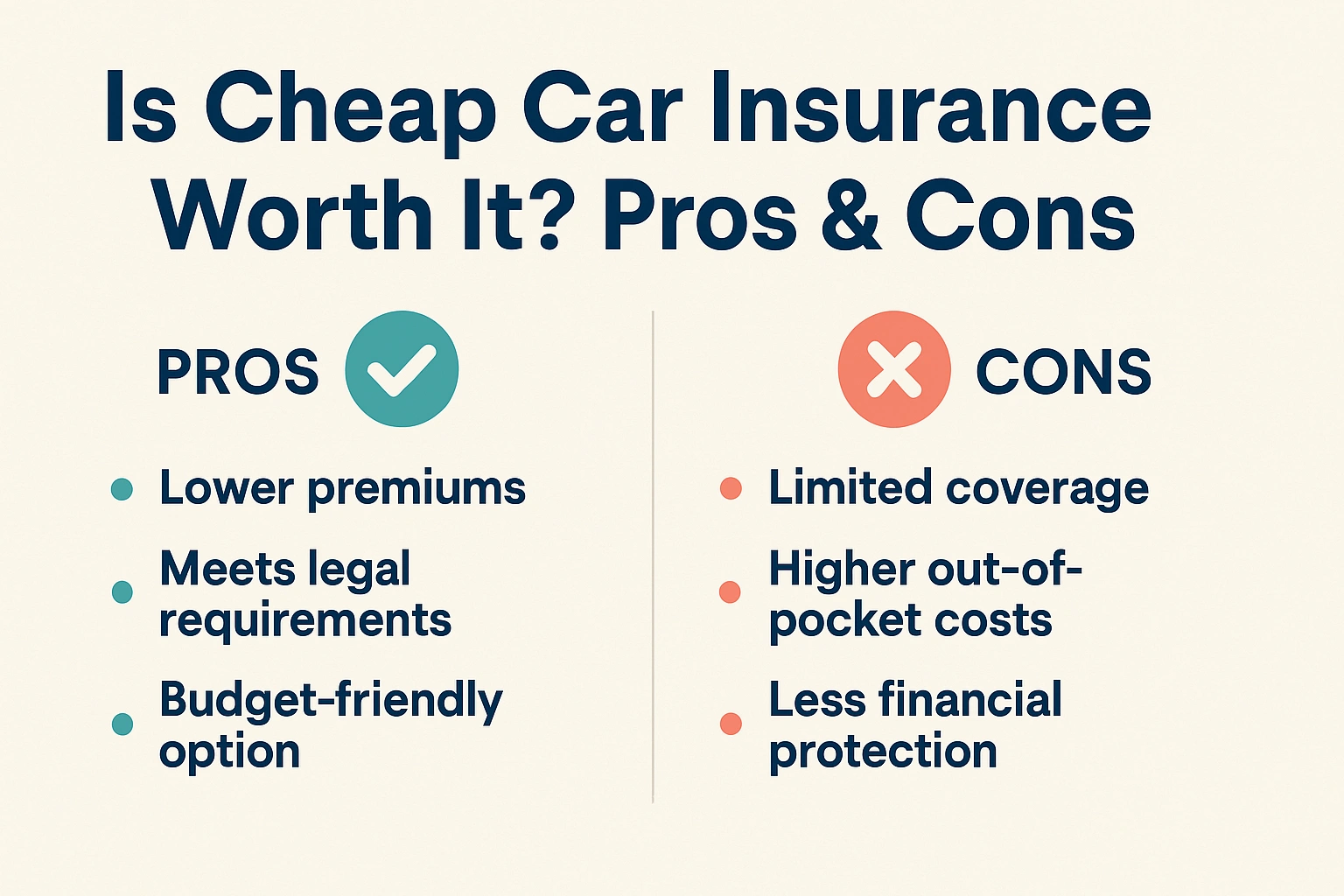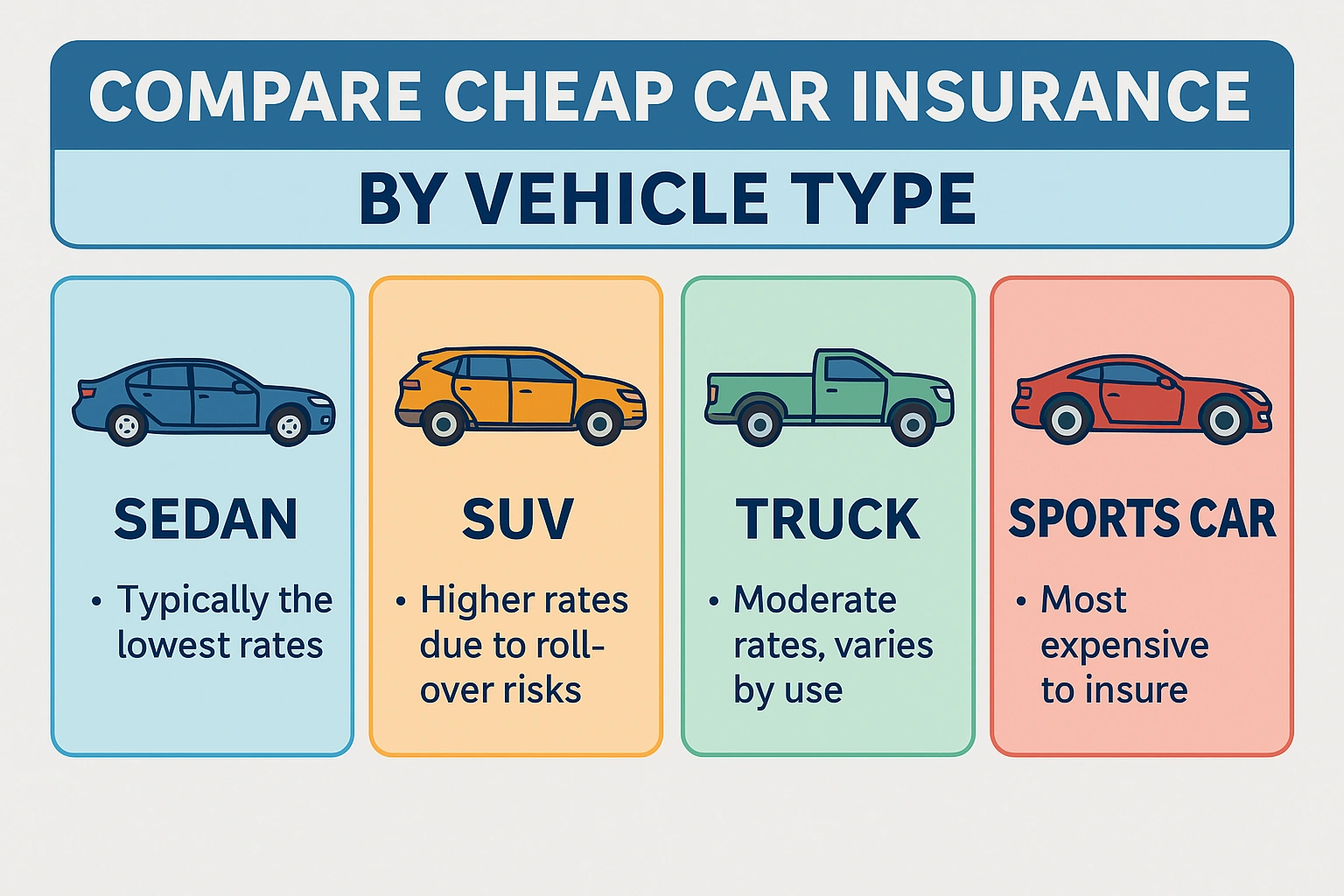Let’s face it — we all want to save money on car insurance. But is that super-low premium too good to be true? Cheap car insurance can look appealing at first glance, but it might come with trade-offs you’ll regret when it matters most.
In this article, we break down the pros and cons of cheap car insurance so you can decide if it’s truly worth the risk — or just a quick way to end up underinsured.
What Does “Cheap” Car Insurance Actually Mean?
Cheap insurance usually refers to policies with low monthly premiums — often because they offer minimal coverage, high deductibles, or limited benefits. In some cases, it may be tied to basic liability-only coverage, which meets your state’s legal minimum but little else.
Pros of Cheap Car Insurance
✅ Lower Monthly Premiums
The most obvious benefit — lower upfront costs — is ideal if you’re on a tight budget or driving an older car not worth full coverage.
✅ Meets Legal Requirements
Basic liability policies are usually enough to legally drive in most states, helping you stay compliant without overpaying.
✅ Good for Low-Risk Drivers
If you have a clean driving record, drive rarely, or own a paid-off car, minimal coverage might be all you realistically need.
✅ Perfect for Short-Term Use
Need coverage for just a few months? Cheap insurance may offer the affordability and flexibility you want short-term.
Cons of Cheap Car Insurance
❌ Limited Coverage
Cheap policies often exclude important protections like collision, comprehensive, or uninsured motorist coverage — leaving you vulnerable.
❌ High Out-of-Pocket Costs
Cheap insurance often comes with higher deductibles. In an accident, your savings could vanish fast.
❌ Lower Claim Support
Some budget insurers are harder to reach, slow to process claims, or have poor customer service — especially during emergencies.
❌ May Not Fully Protect Your Assets
Liability-only policies may not be enough to cover damages in a serious accident, putting your savings and future earnings at risk.
When Cheap Car Insurance Might Make Sense
- You’re driving an older, low-value car
- You’re a student or new driver with limited income
- You rarely drive or use public transit most days
- You’re between jobs or relocating temporarily
When to Avoid It
- You commute daily or drive long distances
- You live in a high-risk area (crime, accidents, weather)
- You have a new or financed vehicle
- You can’t afford a high deductible in an emergency
How to Find Affordable Coverage Without Sacrificing Protection
- Compare quotes from multiple insurers
- Ask about bundling, safe driver, or student discounts
- Increase your deductible only if you have savings
- Consider usage-based or low-mileage programs
- Review your coverage every 6–12 months
Final Verdict
Cheap car insurance isn’t always bad — but it’s not always smart either. It may help you stay legal and save upfront, but it could cost you more after an accident if you’re underinsured.
The key? Balance affordability with real protection. Shop smart, compare wisely, and always understand what’s covered — and what’s not.




